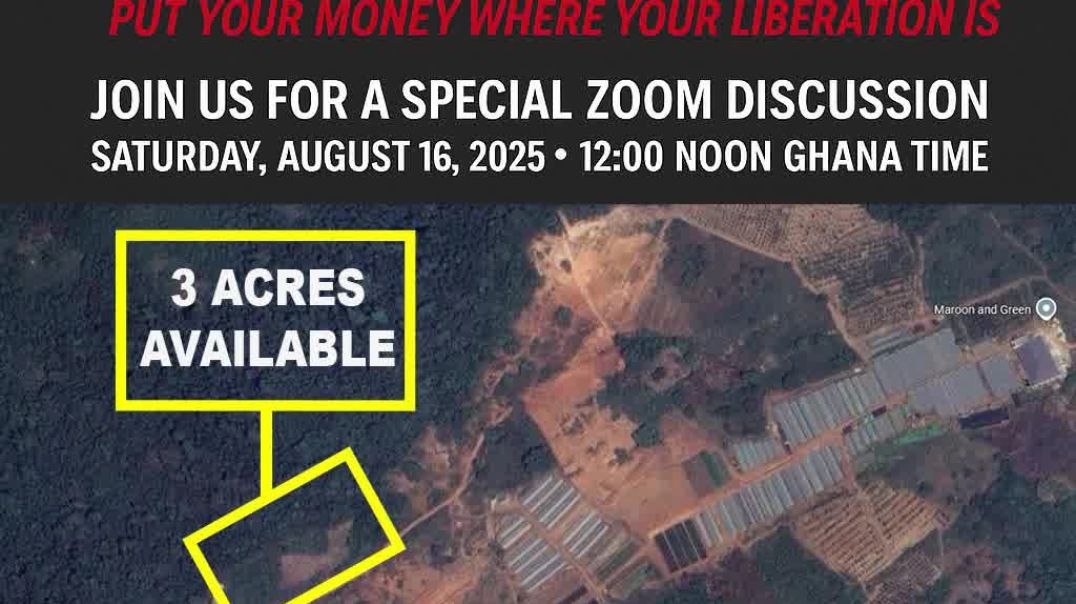Top videos
Want similar success? Sign up for a consultation: https://www.r2gh.com/quiz
Documentarian St. Claire Bourne takes a close-up look at author and historian John Henrik Clarke, who, on camera for much of the film, bounces back and forth between a description of his own personal history, and his views on the history of Africa and of Pan-Africanism. His points are backed up by old newsreel footage, and by images of artwork depicting Africans and their civilization over the centuries. Actor Wesley Snipes executive produced the film and serves as a narrator. John Henrik Clarke: A Great and Mighty Walk was made in 1996, with Clarke suffering from glaucoma, barely able to see as he gives his sweeping account. He talks about his own upbringing, and his growing interest in Pan-Africanism, the failures of the civil rights movement and the Black Power movement, his close friendship with Malcolm X, and his critical assessment of Louis Farrakhan's Million Man March. He also gives a primer on the history of African civilization, and argues that no conquering or colonizing power ever "brought civilization" to Africa, but rather these nations destroyed what civilization they didn't understand, and brought many of Africa's ideas back to their bases in ancient Greece and Rome. He also describes how Black Africans were methodically removed from the history of the civilization of the Nile. He details how leaders like Marcus Garvey, W.E.B. Du Bois, and Ghanaian Kwame Nkrumah spread the ideas of Pan-Africanism throughout the U.S. and the world. John Henrik Clarke: A Great and Mighty Walk was shown at the 1997 Sundance Film Festival, and won the Best Documentary award at the 1997 UrbanWorld Film Festival. Clarke died of a heart attack in 1998. ~ Josh Ralske, Rovi
Our last part on Shaka Zulu
A beautiful moment in the middle of Lucky's concert that showcases the vocal talents of his back-up singers and band. A heartfelt wish for Africa and humanity: to be free.
Lucky Dube at Bay Street, Sag Harbor, NY, July 8, 1990.
© Step Lively Video, 2020
Lets dig deeper into this staged event.
Presented by Lashid4u
DR Chares S. Finch The Wheel of Heaven
AFRIKAN WORLDVIEW
Out of invisible boundaries Africa was needlessly partitioned displacing families and creating an illusion of fragmented and different African people. Till today Africa has been unable to erase these disruptive invisible lines.
During the period of New Imperialism between 1881 and 1914 the scramble for Afrika caused the death and denigration of many Afrikans, holding back growth and destroying numerous African civilizations, mentally erasing and blinding Africans to their immense contributions towards humanity.
Based on what we had in our soil, they called our land the land of gold, Gold Coast. The land colonized by Akwesi Buroni for its natural resources and minerals and after years of continuous resistance and fighting against colonial rule our forefathers and foremothers finally threw off the yoke of British colonial rule. Led by Ɔsagyefo Dr. Kwame Nkrumah a new nation was born; a nation charged to take absolute control of its growth economically, politically and socially.
Those were changing times for Ghana. Through self-discovery our nation was geared up to move forward, breaking the shackles of yesterday.
Where is Afrika today? Who is the Afrikan and what does she stand for? Has Ghana rediscovered itself, have the shackles of yesterday been broken, at last, the shackles of slavery and colonization?










